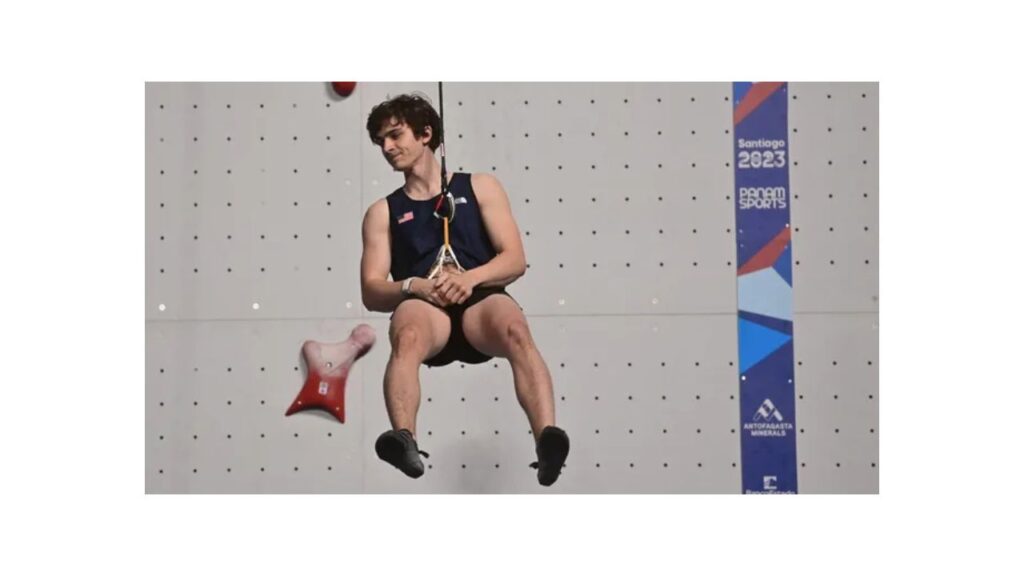Climbing made its debut at the 2021 Tokyo Olympics. Before then, the sport was introduced to the Olympic stage during the 2018 Youth Olympic Games in Buenos Aires.
The decision to add climbing to the program, along with skateboarding and surfing, was a part of an effort to include more urban sports with an emphasis on gaining popularity among younger people. Sport climbing will still be offered at the 2028 Summer Olympics in Los Angeles.
How does Olympic climbing work?
Three disciplines make up Olympic sport climbing: bouldering, speed, and lead.
Bouldering: In a set amount of time and with the fewest number of tries feasible, athletes climb a 4.5-meter (about 15-foot) wall without the use of ropes.
Lead: In six minutes, climbers reach their maximum height on a 15-meter (nearly 50-foot) wall in a single attempt.
Speed: Competitors ascend a 15-meter wall with a five-degree incline in one-on-one elimination rounds and a timed race. For men, the best athletes can complete it in less than six seconds, and for women, it usually takes less than seven.
These Games differ from the Tokyo Olympics in that bouldering and lead are still combined, but speed climbing is now its own event. Climbers can concentrate on their specialties thanks to this structure.
In addition, the scoring scheme differs from Tokyo’s. To get the final score for the 2021 Games, the scores from each discipline were multiplied by one another. However, the new judging approach for bouldering and lead involves a maximum of 200 points, eliminating the factor of speed climbing. In bouldering, climbers earn points by moving through different “zones” on the wall (5 points for a low zone, 10 points for a high zone), and completing the top hold (25 points). A flawless bouldering round consisting of flashing four boulder problems is worth 100 points. Points are deducted for attempts.
Athletes who are in the lead earn points by holding the top 40 holds; as they advance up the wall, more points are awarded for each hold. An athlete will receive an additional 0.1 points on top of their previous score if they advance to the next hold but are unable to hold it securely.
In bouldering and lead, twenty men and twenty women compete.
There are fourteen competitors in the speed discipline for men and women. There are two speed runs for each climber (on two different walls). Based on their fastest time, they will then be ranked 1 through 14, and those rankings will determine the pairings for the subsequent elimination rounds.
Top Team USA athletes for climbing at 2024 Paris Olympics
- Sam Watson: Watson, 18, currently holds the world record for men’s speed with a time of 4.79 seconds. He won gold at the Pan American Games in Santiago last year and finished 2023 ranked eighth in the world in the men’s speed category.
- Natalia Grossman:She placed first in the women’s bouldering competition last year and fifth in the bouldering and lead combined division. At the Pan American Games, Grossman won gold in the boulder and lead events.
- Brooke Raboutou: The daughter of former climbing world cup champions Robyn Erbesfield-Raboutou and Didier Raboutou, who is French, Brooke finished fifth in Tokyo and speaks the language fluently.
